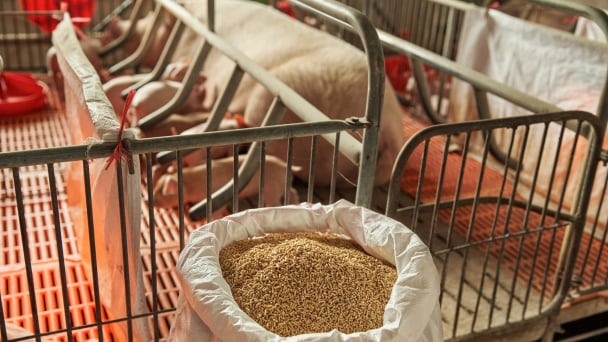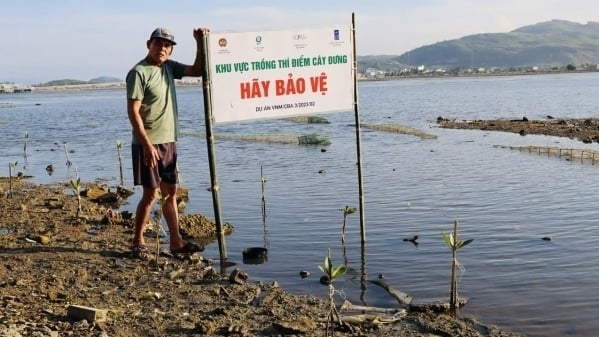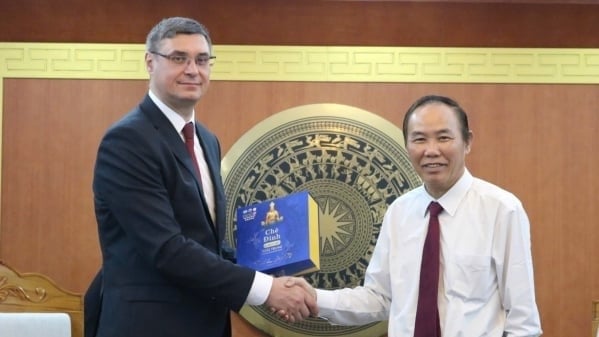May 22, 2025 | 12:22 GMT +7
May 22, 2025 | 12:22 GMT +7
Hotline: 0913.378.918
May 22, 2025 | 12:22 GMT +7
Hotline: 0913.378.918
By 2050, the global population is projected to reach nearly 10 billion people. While some may give caution to the challenge of feeding this surging mass of consumers and warn of potentially rising food insecurity risks, others see an investment opportunity to develop trade partnerships and tap into underlying and often overlooked demand.
Officials at the US Department of Agriculture (USDA) said the regions in the world with the most fertile ground for agricultural enterprises are in Africa, Southeast Asia and the Middle East.
“Twenty-five percent of the global population will be in Africa by the year 2050, and that’s why it’s important to give producers these tools so they can assess and develop these markets and provide an opportunity to our farmers, ranchers and processors,” said Daniel Whitely, Foreign Agricultural Service administrator for the USDA, during a recent presentation at the 128th annual National Grain and Feed Association convention where he encouraged industry participants to take advantage of USDA programs to help them expand into underutilized markets. Whitley said several of America’s export competitors already are laying a foundation to do business with Africa by building relationships and investing in infrastructure.
“This is an Africa with a growing middle class, increased buying power, increased GDP, and a very strong recognition and appreciation for the US brand, so it’s vital that we get into these markets,” Whitley said.
Growing middle classes were a key indicator of fresh market opportunities since consumers tend to spend their surplus dollars on higher-quality foods, Whitley said, adding that the global region with the fastest growing middle class was Southeast Asia. He also said this region already had a deep appreciation for American products evidenced by the extensive array of Westernized restaurants and food products currently available in the area, indicating an inherent demand that was ripe for development.
Whitley said another region that was beginning to embrace and demand more Western products was the Middle East.
“I had the opportunity to travel to Dubai and other parts of the Middle East in the last couple of years, and it’s a very different place now,” he said. “The tourism industry and the expatriate population is growing vastly, and we see more and more demand for the food and agricultural products that we enjoy right here in the United States. And they want these products from American producers.”
Whitley highlighted a recently announced funding opportunity called the Regional Agricultural Promotion Program (RAPP), which will provide $1.2 billion over five years to support eligible projects targeting these less explored but fertile markets. The application deadline for the first tranche of funds closed in early February, and Whitley said the Department is reviewing the submissions, but he encouraged those interested to apply in the next round of applications when future tranches of funds become available. He also promoted other programs offered by the USDA and urged industry participants to engage with the Department.
“We want to hear from you,” he said. “We want to hear from the industry. I don’t grow anything. I don’t sell anything. But what we try to do is create an environment for those of you who do grow and do sell stuff so that you can be successful. And the best way for us to create that environment is for you all to communicate with us. So, we ask for your continued partnership in accessing our programs.”
(WG)

(VAN) CJ Feed&Care officially launched the FCR improvement campaign called “2025 Find Challenge Reach” in April 2025. In Vietnam, this campaign is implemented by CJ Vina Agri.

(VAN) The swamp in Pho Thanh is gradually being covered with red mangrove, creating a favorable environment for producing clean, high-quality salt.

(VAN) The trade turnover of agro-forestry-fishery products is growing significantly, along with investment cooperation commitments that are opening up new development directions between Vietnam and Russia.

(VAN) Khanh Hoa is investing over 545 billion VND to develop 240 hectares of high-tech marine aquaculture in order to guarantee a consistent supply of seafood exports and achieve the USD 1 billion target.

(VAN) Minister of Agriculture and Environment Do Duc Duy held a meeting with Soopakij Chearavanont, Chairman of C.P. Group, on May 15.
/2025/05/16/3800-0-nongnghiep-143756.jpg)
(VAN) Suntory PepsiCo Vietnam coordinated with the Ministry of Education and Training to implement an education program on water conservation, reaching nearly 1 million primary school students nationwide.

(VAN) Vietnam’s TH Group officially put its high-tech fresh milk processing plant into operation in the Russian Federation, marking a historic moment as the first TH true MILK cartons were produced in Russia.